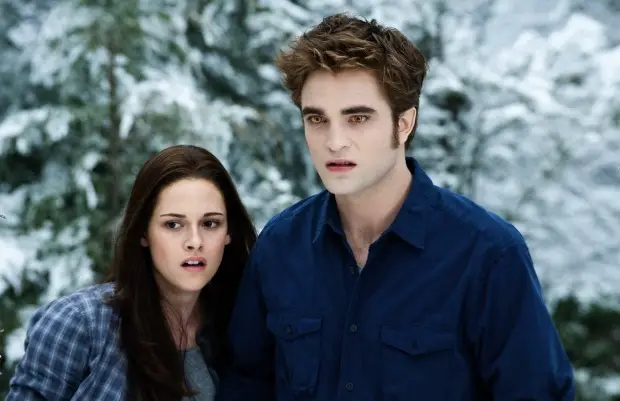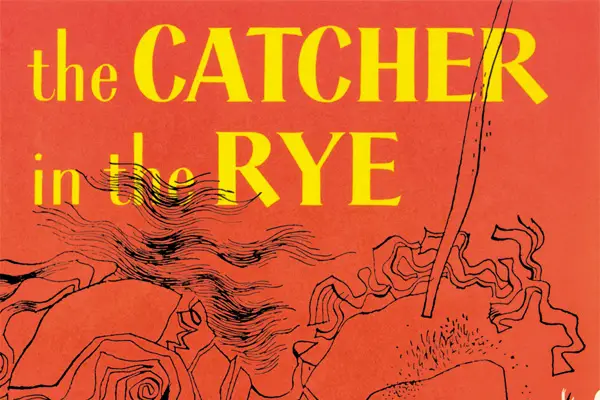Fiction and Teen Angst
Anyone who denigrates literature for appealing to teenagers is forgetting what makes reading worthwhile.
By Kristian Porter, Northern Kentucky University
When I was in high school, I was teen angst incarnate.
Convinced that the entire world was out to get me, I spent those four years (and if I’m being honest, the majority of middle school) listening to punk songs, writing bad poetry and wallowing in irrational misery.
Did I have a reason? Not exactly. Did that stop me? Absolutely not.
Although I was surrounded by equally brooding teenagers, I was certain I was alone, and no one could possibly understand the way I was feeling. Enter: Holden Caulfield.

I first read “The Catcher in the Rye” as a sophomore in high school. As I stared my imminent future in the face, Holden Caulfield’s desperation to preserve his innocence spoke to me in a way no one else had tried to.
The book remains my favorite, if only for the way it impacted my teenage self, and I’m always taken aback when I discover that there are some people who didn’t connect with Holden in the same way.
In fact, a large portion of people despise J.D. Salinger’s famous novel because they find the main character to be filled with too much angst (only because they never met me at fourteen).
And it’s not just “The Catcher in the Rye” that I’ve noticed catching heat for the whiny teenager trope; it’s the entire young adult genre.
To some readers, because this genre is full of novels that center around a teenager and the expression of his or her feelings, all books of this type are looked down upon and categorized as not “real literature” because of their inclusion of so-called “whiny teenagers.” This assumption immediately deems the work of fiction as not worthy of reading.
To state that something isn’t real literature is horrendously elitist, but the biggest problem with this train of thought is the assumption that a genre that explores heavy, relevant themes and has inspired so many new generations of readers is somehow less because of the age of its audience.
All Literature Is Real Literature
As an English major, I am all too familiar with the concept of the canon, that there is a select group of works that are chosen to be Literature with a capital “L,” and they represent the best of what writers have to offer.
I’ve never been comfortable with the idea of a group of old, white men segregating pieces of art into categories based on their own opinion. It shapes the discussion of novels, as if they are either Shakespeare or trash, turning most books into so-called guilty-pleasure reads.
I have never felt guilty about reading “The Catcher in the Rye,” or any novel that helped soothe my moody teenage heart. I wanted to tell everyone about the new worlds I’d discovered inside those pages, desperate to use the words as an olive branch to help others understand me.
Holden Caulfield, along with Craig Gilner and Charlie, were the friends I needed. I didn’t think about the literary merit of the novels; I just loved them.
As a teenager, those books were what I needed, so how can you say that, now, they have no place in the world of literature? Who gets to decide what books are considered good and which are chastised?
The problem is, because the audience of young adult literature is teenagers, its readers are perceived to be less educated in what is “good,” and sadly, their opinions seem to matter less.
But why? Why is it second nature to disregard the way teenagers feel, as if, because of the intensity with which they experience the world, their feelings are discredited?
From experience, I can tell you that yes, I was overdramatic and full of purposeless sadness, but those feelings were real, and it was important to find echoes of those feelings in the characters I read about.
If a book makes a connection with its audience, if it impacts the way they view the world, then that book has done its job. That book can take its place next to all the others in the fictitious canon of literature.
The More You Read, the Better
For those four years of high school, I couldn’t put books down. I devoured any book that in some way mirrored what I was going through. I attribute most of my love of reading to the books I discovered at this time.
And isn’t that what everyone should be encouraging? More teenagers reading more books?
In the film “Shadowlands,” a biography of writer C.S. Lewis, his character famously says, “We read to know that we are not alone.” I reached for a book to find someone who understood me, just as many teenagers do.
If people continue to put a stigma on an entire genre that’s meant to connect with teenagers, fewer will be inclined to pick one up.
When they reach for a John Green novel, they do so not because they’re looking to find the next literary masterpiece (though his writing does have its beautiful moments), but because they want to find themselves. Green speaks to them like people, fully-functioning with their own outlooks on the world, and represents their feelings inside his characters.
When I was younger, I read the “Twilight” series, and I loved it. Bella was extreme, falling quickly in love with Edward and mourning him when he wasn’t there. The book was dramatic and everything that I was at that age, so I ate it like candy.

Years later, I find it almost shameful to admit that because of the way some have categorized Stephanie Meyer’s series. But those books were a catalyst to countless other series that I never would have found, and I know the same to be true for others.
If a book ignites a love for reading, regardless of its content, no one should be shamed for reading it. Being a teenager is hard enough without the world telling you what you should and shouldn’t read.
Yes, maybe the characters in many young adult novels are dramatic and full of angst, but so are teenagers. Somewhere in the world, a fifteen year old is picking up “The Catcher in the Rye” for the first time and seeing themselves reflected in Holden Caulfield, and it’s turning their world upside down. Suddenly, they want to search for more books that make them feel this way, and that is why these books are so important.

















